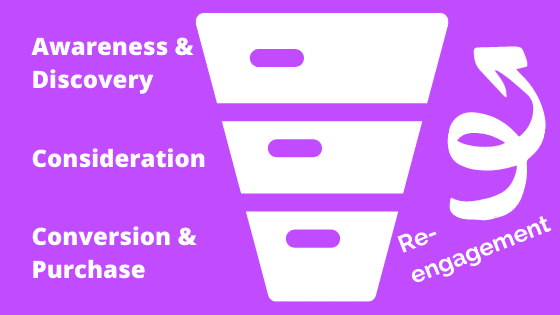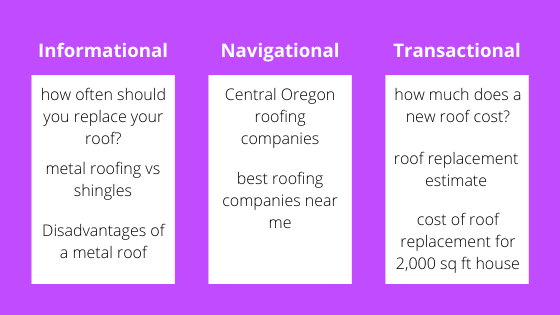What are SEO Keywords?
SEO Keywords are the words or phrases people use to search for information, products, or services online. They are also the words or phrases used by internet search engines to rank and sort content on the internet.
When you select & use SEO keywords the goal is to make sure that your keywords align with what your potential customers would be searching (i.e. search query) and how search engines understand and categorize your website.
For example, when you start typing in the Google search bar, “what is an algorithm,” Google presents the top related content based on the information it has indexed and ranked using its search algorithm.
In this case, the search engine presents a definition as the top result and quickly suggests similar questions and content that it has deemed most useful and relevant to answer the search query.
If “what is an algorithm” is something your potential customers would search for and is relevant to your service offerings, you’ll get the benefit of additional exposure & website traffic when you appear higher in search results for this phrase, which could be one of your SEO keywords.
Expert Insight: SEO Keyword vs. Search Query
A search query is an exact word or phrase someone types in to search for information using a search engine. In the above example, “what is an algorithm” is the search query. An SEO keyword is a word or phrase that is represented on a webpage in order to match a search query. A search query and an SEO keyword can be the same or they may be slightly different. In this case, the SEO keyword could be “what is an algorithm”, or “algorithm”. Here’s another example: A web page using the SEO keyword “what is digital marketing” could match to a search query for “what is online marketing”. In this case, the SEO keyword and the search query don’t match exactly.
Why Are SEO Keywords Important?
SEO keywords are important because they can help you to reach your target customers when they are searching for information related to your business online. Choosing and using the right keywords is an important tactic for any SEO strategy. The SEO keywords you choose to target should align with your SEO strategy and your overall business goals.
How do you choose your SEO keywords? Before we answer that question, let’s dig a little deeper into the different types of SEO keywords and how they can be used to reach people at different stages of the buying cycle or customer journey.
The Buyer Journey
When we think about SEO keywords impacting buyers along their journey, we can think about four key stages.
- Buyer Awareness and Discovery
- Consideration
- Conversion and Purchase
- Re-engagement
When selecting SEO keywords to target, it’s important to think about where you want to reach people in their purchase journey and apply that to the different types of keywords you are targeting.

Types of SEO Keywords
There are a variety of different ways to think about and categorize the types of SEO keywords. Here, we’ll cover types of keywords based on length, how the keyword relates to your business’s specific buyer journey & your specific industry, as well as keywords by product or service.
Types of SEO Keywords Defined By Their Length
- Short Tail Keywords (also called head, broad, seed, or generic keywords)
- Mid Tail Keywords
- Long Tail Keywords
Short, Seed, or Broad Keywords
These are broad search terms that have a very high volume of search traffic. These terms are usually one or two words, and they are typically the most competitive SEO keywords.
Example: roofing company
Mid-Tail Keywords
Mid-Tail Keywords are usually two to three words and are slightly more descriptive than generic seed keywords. These keywords are likely to be less competitive than broad keywords because they are more descriptive.
Example: best metal roofing company
Long-Tail Keywords
Long-tail Keywords are highly targeted to a specific topic or audience and typically consist of multiple words, giving them their name. Because long tail keywords are more specific, they tend to be less competitive and can lead to higher click through rates.
Example: best roofing companies with free estimates in Portland
The more specific your target keywords are, the more likely you will be able to provide the information the searcher is looking for because you can better understand the searcher’s intent. This makes your website more relevant, which can positively impact your search rankings.
Here is an example, when someone types in a search for dog collars, they could be searching for information on dog collar pricing, holiday-themed dog collars, dog collars for large dogs, or what type of dog collar is best for their dog. With this broad keyword, it can be more difficult to understand and provide the information the user is looking for.
If someone searches for “best holiday-themed dog collars for large dogs”, you have a much better idea of what the searcher is looking for and can therefore provide much more relevant information to answer this search query. When you target this more specific, long-tail keyword, it makes your website more useful than another website which simply has dog collars for small dogs.

Buyer Intent Keywords
This brings us into SEO keywords categorized by a buyer’s intent. Buyer Intent Keywords are those that show the searcher has some intent to buy or purchase a product or service. Although these keywords signal purchase intent, they can be used by consumers throughout the buying process and don’t all signal the searcher is ready to make a purchase right away. There are a few different types of Buyer Intent Keywords.
- Informational Keywords
- Navigational Keywords
- Transactional Keywords

Informational Keywords
Informational Keywords relate to general inquiries. These keywords reflect the buyer’s awareness stage of their journey. Searchers often use informational keywords when they are aware of a problem and seeking a solution.
Example A: How often should you replace your roof?
Navigational Keywords
Navigational keywords relate to searches for a specific brand or company. Searchers often use navigational keywords when they are in the consideration phase of the buyer journey. If users are researching different brands they are likely trying to determine the best solution to their problem.
Example: Central Oregon roofing companies
Transactional Keywords
Transactional Keywords relate to searchers who are ready to purchase. People use transactional keywords when they are in the conversion phase of the funnel. They already know what they want to buy, and they use specific terms.
Example: How much does a new roof cost?
Thinking about your SEO keywords in terms of where your customers are in their journey, will help you to build a strategy that reaches your target customer throughout their journey. This gives your company the opportunity to build sustainable growth.
Industry & Business Specific SEO Keywords
Industry & business-specific SEO keywords are the keywords that are targeted specifically to your industry, your target customers, or your market.
- Market Segment Keywords
- Customer-defining Keywords
- Product Keywords
- Competitor Keywords
- Geo-targeted Keywords
Market Segment Keywords
Market Segment Keywords apply to the overall vertical of an industry. These terms are often broad, defining your product or service. Market segment keywords can be more difficult to rank for, but also provide the largest potential reach.
Example: Sunglasses
Customer-defining Keywords
Customer-defining keywords identify specifics about a customer. Including how your customers refer to themselves, i.e. “small business owner”, or particular characteristics they have, i.e. “coffee lover”. They can also be more broad descriptors like gender or age. Customer-defining keywords help you to create relevant connections with searchers who want or need your product or service. When you can understand your audience, you can create better content that is more relevant and authentic.
Example: Sunglasses for women
Product Keywords
Product Keywords are keywords that include specific types of products or services. These types of keywords help you to reach the people looking for more specific products and can lead to higher click through and conversion rates. As an example, let’s look at sunglasses. Someone may search for specific brands, colors, or sunglasses that are polarized or made for biking. Targeting product keywords can help you to better promote your offerings for those in-market customers.
Example: Polarized Puma sunglasses
Competitor Keywords
Competitor Keywords are keywords that contain your competitor’s names or specific products. Being aware of your competitors top products and keywords can help you better understand what your target audience may also be looking at and help you generate fresh ideas for SEO strategy.
Example: For Puma, a competitor keyword might be Nike.
Geo-targeted Keywords
Geo-targeted Keywords are, you guessed it, location-based. These phrases identify either where a search is located or an area your audience is interested in. If you live in a large city, you can break down your geo terms into neighborhoods to capture more targeted segments. Or likewise, if you live an area that is typically included in a larger geographic area, i.e. Oregon being a part of the Pacific Northwest, you can expand your reach with more broadly defined geographies. Geo-targeted SEO keywords are essential for local businesses to consider as they are looking to reach users in their local area.
Example: Where can I buy Puma sunglasses in Chicago?
Let’s Review
SEO Keywords are the words or phrases people use to search for information online and what internet search engines use to rank and sort content on the internet. There are various types of SEO keywords defined by their length, how the keyword relates to the buyer journey, to your industry, your audience, or to your specific product or service.
Remember, your goal when selecting SEO keywords is to reach your potential customers while they are searching online for information related to your business, products, & services so that you can improve how search engine’s view the content on your website.
By aligning your website content with your target SEO keywords, you can improve your search engine rankings. By understanding the intent behind the various types of keywords, you can better plan how and when to reach your ideal customers using the information on your website.
Here, we covered SEO keyword types; however, leveraging keywords to improve your business outcomes is also applicable to Google Ads. You can learn more about Google Ads Keywords in our Complete Guide to Google Ads Keyword Match Types.
Have questions about the types of SEO keywords or want to talk with someone about your SEO strategy? Contact us today for a free consultation.


6 Responses
I had a great time reading your blog. Your posts sparked my interest as well. Really informative.
Thank you! Glad you found it informative.
Hey, this is very informative article. I got many new ideas from this. thankyou I really liked this 🙂
Awesome! Glad you like it so much.
Oh, it’s a wonderful blog, the content is quite helpful, and having some amazing wonderful ideas. Thanks a lot, author for sharing with us.
Excellent post! Your breakdown of the different types of SEO keywords is very informative and easy to understand. The examples you provided for each keyword type are particularly helpful in illustrating their uses. This is a great resource for anyone looking to improve their SEO strategy. Thanks for sharing!